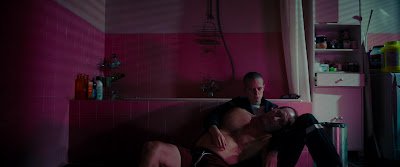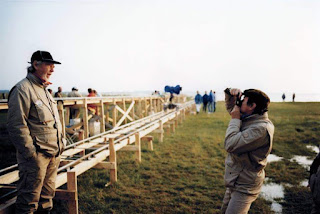Titane (2021), Julia Ducournau
Julia Ducournau's cinematographic perspectives and technical aesthetics support the entire conundrum of birth, death and parenthood where the contextual shortcomings of the presentation is overridden by her ingenious absurdity which makes itself prominent since the first sequence itself. The 2021 palme d'or winner presents itself on the perceptible helm of a Cronenberg-ish body horror where Julia's individual elements of a gut wrenching crudeness as demonstrated by her earlier in ‘Grave’ 2016 maintains the graphic ferocity from it, making our skins crawl.
Ducournau has sketched a character of utter uncertainty and ridicule of the maximum order, where down the years Alexia may be referred among the benchmarks of the most psychologically susceptible characters. The uncertainty, ambiguity and volatility of Alexia's traits helps the subtle elemental transitions in the progression. Where the stylish opening introduces us to Alexia grooving over a car makes it's shifting onto the plethora of an inexplicable erotic display of mechanical fetishism, which even further conducts a progressive staging of mysterious psycho killing crime to employ the directorial attributes of a thriller in an attempt to reveal the climactic peak. (in a way)
There's a lot of explanation for Ducournau to do. The subtlest shocker of 'Titane' remains in the insinuated tropes of Alexia's sexuality which covers for more of the spectator's engrossment than of the blatant brutality. The bright French art-horror director has frequently made it crystal on Alexia's sexual ambiguity; not only to the spectator but to Alexia herself. Terrifying absurdities of mating with an automobile, getting sexually imbued through it, the uncontrollable urge to spill blood after a erotic confrontation and even the demonstration of a rather grotesque fantasia of getting pregnant by the wheels, serve up as the testament of her sexual doubtfulness.
Ducournau's primitive design of individual exploration and a metaphysical identity crisis running throughout, tracing back to faulty parenthood and life altering tragedy seems to be theoretically intriguing and no matter how much the cinematic presentation's horrific appeal does the job in shocking the viewer, the shortcoming of an artistic illustration is evident upon the film's closure. On the parameters of cinematographic aesthetics, 'Titane' excels in the horror sector however from expressive perspectives among French horrors, the likes of 'Trouble Every Day' 2001 stays as a deeper probing of individual perplexity (no thematic correspondance) or even Julia Ducournau's previous craft of artsy cannibalism proves to be of a greater achievement of humanistic compulsion.







Comments
Post a Comment